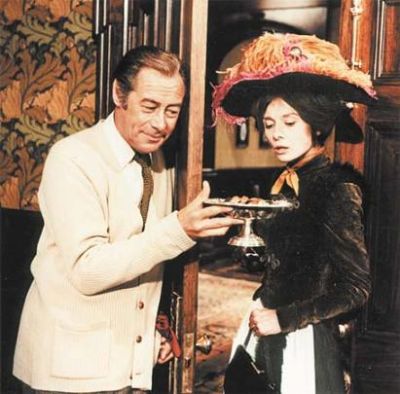English was the first open source language


Well before the Internet was a gleam in Al Gore's eye, even before Ada Lovelace programmed Charles Babbage's imaginary Differential Engine, English had shown the way toward an open source future.
Despite Prof. Higgins' protestations, it was putting English onto the tongues of the multitudes that gave it power. Wherever the Empire went, so did English, and imported words were soon filling the mother tongue.
Words to describe new concepts like tobacco, plain old made-up words like those of Shakespeare, or words imported from the Empire like pajamas, all were welcome, tested, twisted, and adapted.
(The Cockney attacked by Higgins throughout George Bernard Shaw's "Pygmalion," from which "My Fair Lady" (above) was adapted, were among the greatest English hackers. G'wan, you say.)
The work of Noah Webster, who tried to simplify and Americanize English, was only partly successful, because he lacked authority to limit the language, and his fellow Americans just refused to go along. OK, we wrote color instead of colour, but we kept making stuff up in our rough accents and these terms filtered in.
Accents create words and phrases. Professions create them. Ethnic identity creates new words. It's an open source process whether they're accepted, and an open source process that can lead to our saying sayonara to them.
Even the grammar of English is subject to change without notice, not to mention our spelling. When did the become teh, as in teh sex, or teh gay?
Techies depend on English' malleability to make new words they can copyright. Thank God for letters like q, and x, and z, and if that's not good enough just double them. We'll find something we can register for $10. We also like creating new concepts, like webinar, that never existed before. Or mashups like Microsoft.
Needless to say this drives non-English speakers crazy. I had to explain to my Chinese friends in Chengdu that we no longer release records, we "drop the CD." The "oh noes" look I got back was priceless.
It's hard to keep up. Current estimates are there may be 500,000 to 1 million English words and word forms in common use. And don't worry, I told my hosts, if we find words in your language we like we'll be happy to steal them. Panda. Or we'll twist them. Chop suey.
What can I say? I'm a fanboy of English. We have a bromance. I'm not blamestorming here. It is what it is.
The point is that the process that makes English so rich and universal is an open source process. Yes, there are "authorities," but they mainly exist to validate what the culture has already done. Fo shizzle.
So why is anyone surprised that what works on the tip of their tongue works in software?